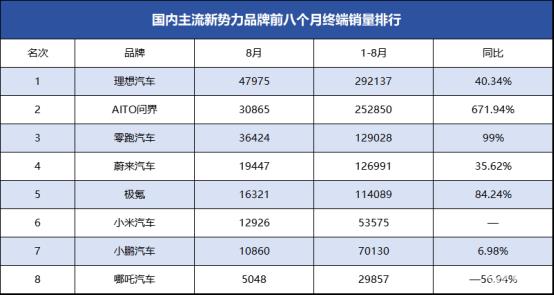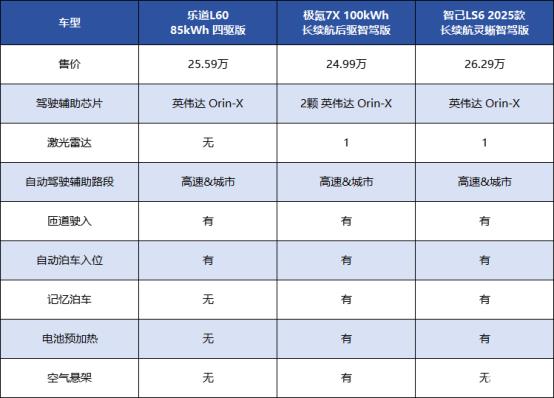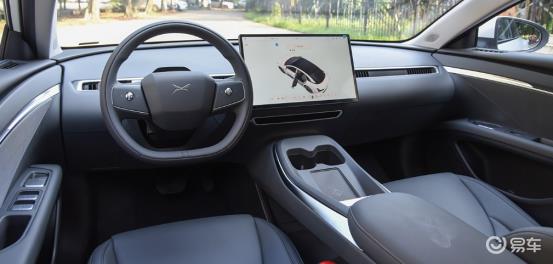Let talents concentrate on basic research, what problems remain to be solved?
Basic research is the main switch of scientific and technological innovation and the source of all science and technology. In recent years, with the advent of a number of major scientific and technological achievements, China’s science and technology has changed from following to running and leading in some fields, and some fields have even taken the lead in "no man’s land", which puts higher demands on China’s basic research.
Talent is the key to achieve a breakthrough in high-quality basic scientific research. In reality, due to the long period of basic research, many uncertain factors, slow production and difficult transformation of results, how to evaluate and test the training effectiveness and actual contribution of basic research talents has become a major problem that puzzles people.
Under the background of "breaking the four virtues", what problems remain to be solved for talents to engage in research calmly? Especially the assessment, evaluation and incentive mechanism, where should we go?
The charm of basic research lies in the infinite possibilities behind uncertainty.
A few days ago, Pan Leiting, a professor at the School of Physical Sciences of Nankai University, just accepted the mid-term assessment of the school’s talent plan. In the assessment, how many articles have been published, how many projects have been completed, how many students have been taken, what innovations have been made in discipline construction, and what contributions have been made to social services … A series of indicators cover scientific research achievements, teaching effects, social services and other aspects, which are not comprehensive.
"Now the whole country is emphasizing’ breaking the four virtues’, and all units are formulating new evaluation methods. The overall orientation is to evaluate more comprehensively and stereoscopically." Pan Leiting said, "But in practice, some quantitative indicators are intuitive and there is no dispute in judging; Other non-quantitative indicators are relatively vague and difficult to judge. "
For example, the contribution to the discipline construction of the school. "Scholars go out to make a report, is it a contribution? What is the contribution? What is the measure? " In Pan Leiting’s view, these are still unclear places.
"In fact, compared with applied and engineering research, one of the most important forms of basic research, especially theoretical research, is the paper." Wang Chuanyi, deputy director of Tsinghua University Graduate Education Research Center, came straight to the point. "Therefore, the reform of evaluation mechanism requires’ not only papers’, but’ only’ instead of’ papers’."
Wang Chuanyi has been engaged in the research on the effectiveness evaluation of "double first-class" construction and the evaluation of teachers’ scientific research. He feels that over the years, the state has paid more and more attention to basic research and invested more and more. But although everyone has reached a consensus on the importance of basic research, it is still not easy to attract more people to really devote themselves to it. It is recognized as a "long-standing problem" that basic research results are difficult to evaluate and researchers are not motivated enough.
In addition to the fact that the effectiveness of many studies is difficult to be measured by indicators, the scientific effectiveness of an evaluation mechanism is closely related to the characteristics of the subject.
Uncertainty is a key word accompanying basic research. Not every research assumption is absolutely correct, every experiment is sure to be successful, and every subtle research direction will have output. Pan Leiting can’t remember clearly how many twists and turns he and his team have encountered in large and small experiments.
"Many applied research goals are very clear, but basic research is often not. Therefore, it is difficult to do top-level design. " But in Pan Leiting’s mind, the greatest charm of basic research lies precisely in the infinite possibilities behind this uncertainty.
"Many subversive and original research results are often produced inadvertently. The stories of some Nobel Prize winners are the most vivid examples. Therefore, is it appropriate to’ guide’ our research with a set of framed assessment and evaluation mechanisms? " Pan Leiting said.
How to measure the hard work and contribution of scientific research?
Wang Shuangyin, a professor at the School of Chemistry and Chemical Engineering of Hunan University, always remembers an experience many years ago. At that time, he was a postdoctoral fellow in the United States. When the US Department of Energy accepted a project of his tutor, besides the results, it also paid special attention to the number of students trained through the project and the quality of students’ training.
This had a great influence on him. "Basic research projects should focus on the process, and the results should be natural." He believes that some original basic research, in particular, often has a considerable risk of failure. Sometimes, even if it fails, the students’ ability to carry out original research is exercised during the research process, and their scientific research literacy is improved.
Wang Shuangyin himself had this experience. "An experiment didn’t succeed as expected, but it unexpectedly opened up a new perspective. Students may have different surprises and gains in this direction. "
Not every scientific research is so lucky. "In fact, in the process of cultivating a basic research talent, it is normal for three years and five years to produce no results." Wang Chuanyi said frankly.
He also observed that under the current evaluation mechanism, there is indeed a phenomenon that academic circles blindly pursue hot spots and rely on "short, flat and fast" to produce results. "To do popular research, on the one hand, it is easier to publish papers; on the other hand, there are more people engaged in it, and the probability that the results will be cited is greater. The result is a large number of high-impact articles that lack original innovation and cannot meet the needs of the country. "
At the same time, those "unpopular" fields that are difficult to produce results quickly or directly contain the most subversive innovation possibilities, but researchers often retreat from difficulties.
Faced with such a situation, how to measure the "hard work" and "credit" in basic research?
"There are also many scientific workers who treat academic research very responsibly. On the one hand, they are doing projects with fixed time limits and can produce results on schedule. On the other hand, they are constantly accumulating for their long-term academic career." Liu Xiaomin, a research librarian at the Literature and Information Center of the Chinese Academy of Sciences, believes that basic scientific research calls for more evaluation mechanisms and systems that combine long and short.
Wang Shuangyin’s feeling is that "hard work" in basic research is more about "emphasizing originality" and "whether to observe new phenomena, reveal the essence of phenomena, develop new methods to explore the essence and guide applied research". Accordingly, the evaluation mechanism should also be close to this aspect.
"Basic research should not blindly pursue hot spots, even if it is a hot spot direction, it needs an unpopular perspective." Adhering to this concept, Wang Shuangyin and his team opened up the research field of defect chemistry of electrocatalysts, and carried out a series of research at three levels: recognizing defects, constructing defects and utilizing defects, thus forming their own research characteristics.
Fault-tolerant mechanism, a test of wisdom and courage
"The time to study for a doctor is generally five years. It doesn’t look short, but it’s really not long. " A "double first-class" university professor with 10 students shook his fingers and counted. "In the first year, I studied basic knowledge, and in the second and third years, I started to do research in the laboratory. In the fourth and fifth years, I will consider graduation. If the research is not successful, graduation may be delayed. Do you still dare to let him engage in those’ unscientific’ but exploratory research? "
This is a common problem faced by basic researchers, and it is called "not only testing students, but also testing teachers" by many tutors. In order to make students graduate smoothly, many tutors will make careful plans according to their own conditions: let some students with graduation pressure engage in "short-term and quick" research, while others will study more challenging "big problems".
A few years ago, the requirements for doctoral graduation in colleges and universities rose. In recent years, with the growing voice of breaking the "five talents", many universities in China have gradually relaxed the requirements for doctoral graduation, which has relieved many people. But another common voice is that a fault-tolerant mechanism that encourages innovation and tolerates failure is too necessary.
In January 2018, the State Council’s Opinions on Strengthening Basic Scientific Research in an All-round Way clearly stated that "a fault-tolerant mechanism should be established to encourage innovation and tolerate failure, and researchers should be encouraged to explore boldly and challenge the unknown".
"Until now, the fault-tolerant mechanism in the evaluation system is still very difficult to achieve." Many experts and scholars said in the interview.
"This incident is a great test of the wisdom, courage and pattern of managers." Gao Yingshuang, deputy director of the Institute of Higher Education of China Academy of Social Sciences, said.
The reality is that when the fault tolerance or accountability of scientific and technological innovation subjects is specifically identified, there is still a lack of clear definition standards and corresponding institutional arrangements on which faults can be tolerated and which faults cannot be tolerated, and there is still no small difficulty in scientifically defining the "faults" that can be tolerated.
Secondly, due to the long-term, exploratory, professional and cutting-edge characteristics of basic research, it is difficult for non-professionals to track and judge all the activities of scientific and technological innovation subjects in the process of coordinating and promoting fault tolerance and strengthening scientific and technological innovation management.
"In this regard, we still need to continue to explore." Gao Yingshuang introduced that because of the epidemic situation, many projects involving extensive field investigation were forced to press the "pause button", but most schools and research institutes will try to make an objective and scientific assessment of the projects according to the actual situation.
No matter how the assessment is made, it is necessary for people to concentrate on scientific research.
The central government clearly put forward that it is important to cultivate and select talents not only by "hats" but also by papers, but it is not easy to do so. A large number of disorderly competitions not only waste scientific research funds, but also hinder the healthy growth of scientific research talents.
"The reality is that there is no’ hat’, and the actual treatment is too different." A vice president of a well-known domestic research institute told reporters frankly. He has seen many people get the "hat" without academic breakthrough and care for the elderly with peace of mind. He has also seen many people get discouraged and enter the state of "muddling along" because they have not got the "hat" within a certain number of years.
In addition, according to the data of a survey of basic research talents, 68.9% of the researchers said that "there are too many chores such as meetings, study and administration, which occupy my research time", and 24.1% of them said "very much agree". There are still many researchers who believe that they spend more time on scientific research management such as project application, mid-term inspection and conclusion, as well as reimbursement of project funds.
To build a team of young scholars who are obsessed with science and have no distractions, it is necessary to create a carefree research environment, release and promote more and stronger creativity. In the interview, experts and scholars issued such an appeal-
"We always yearn for a world that accommodates free exploration." Wang Shuangyin said.
"We should make it clear that the assessment, evaluation and incentive mechanism is to serve researchers in the final analysis, rather than mechanically manage researchers." Gao Yingshuang said.
"We should respect the laws of basic research and build a more systematic, inclusive, flexible and flexible organization from the policy orientation." Pan Leiting said.
"Scientific and reasonable evaluation is needed, but we can’t be led by the so-called’ evaluation’, but let basic research talents rely on their own interests and face the major development needs of the country to explore their own world." Wang Chuanyi said.
"We should encourage more talents, let basic research open a door for international cooperation and exchange, and let our scientific research output lead the world and contribute to human development." Liu Yimin said. (Liu Meng Liu Meng, Yang Sa, Cui Xingyi, Jin Haotian, Chen Peng)












































